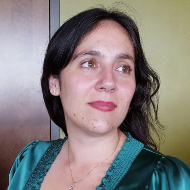The Science Booster Club Project has just funded its first series of teacher grants. Here’s the story of Lee Falkana, the science teacher at an alternative high school in Muscatine, Iowa. He used our grant to buy some basic scientific equipment. You might ask how this helps NCSE impact evolution and climate science education. Let’s hear directly from Mr. Falkana:
East Campus is a unique educational program developed for a specific kind of student found in Muscatine, IA. The alternative program, first developed in 2012, serves about 60 students who met certain criteria: low test scores, low grades, low attendance, and lack of engagement. That is where the school's 10 teachers and staff provide authentic, individualized opportunities for learning. Much of the school's curriculum focuses on learning and skill development, not through memorization and testing (a more traditional goal) but by providing purpose to every assignment. Those assignments all work toward the development of an overarching, authentic project that seeks to make a positive change in either the global or local community, helping the students to develop a sense of compassion and empathy through building ownership in their community.

I was lucky enough to be hired as the East Campus science instructor for its first year and have taught earth and environmental sciences; physics; chemistry; biology; and physical geology, a dual-enrollment college course. My own background is in science, receiving a B.A. and M.Sc. from the University of Iowa in geoscience and eventually obtaining an M.A.T. from the same institution. My only knowledge of how to teach science was obtained through my own experiences in university labs and lectures and through the teacher-training program. Nothing prepared me for the challenge of creating authentic and purposeful curriculum for students who are labeled "at-risk."
So how does one go about making big science concepts like evolution and climate change accessible to students who are unengaged and uninterested? Begin by looking to the community. We follow the human-centered design approach to project development, which means that developers need to address the person first. By understanding the users, their environment, their thinking, and their community, we can develop a project that is useful and changes the community. One way my biology class does this is through examining every aspect of plants throughout the entire year to grow food for the community. Instructors and students can address virtually any science concept required of the Next Generation Science Standards (NGSS) through vegetation. Biology class uses indoor grow tents and various types of lighting systems (LED, fluorescent, etc.) to study cell differentiation through propagation, variation in traits and environments, and eventually evolution through growing vegetables and herbs, geochemical cycles in hydroponic and aquaponic environments, and many others. The end goal for the class is creating a community garden or a hydroponic system to serve the local community or individual community members.

The same approach is used in my earth science class to address issues of climate change and the new NGSS standards connecting the Earth and human activity. Students in my previous classes have constructed a closed hydroponics system in order to study the effects of phytoremediation, or have used certain species of plants to absorb heavy metals in the soil and water. Each tube of the system is a closed loop that contains a known concentration of heavy metal contaminants. Students then raise mustard plants in each system and take the contaminated water to the local wastewater treatment facility or the University of Iowa each week to determine the concentration levels. In the future, we will map the concentration of heavy metals in soils around the more heavily industrialized areas of Muscatine in order to determine the location where phytoremediation would be best implemented. In the coming semester, this class will begin a study in urban resilience, examining what highly urbanized and slum areas of the world need in order to be more resilient toward the effects of climate change and other natural hazards.
Who would have thought? Basic science equipment in the hands of passionate, committed teachers is exactly what we need to improve access to evolution and climate science education. I’m proud to have helped contribute to Mr. Falkana’s work. The small grant he obtained from NCSE’s Science Booster Club Project will impact all his students for years to come. This Giving Tuesday, contribute to NCSE and help us build a grassroots network to support teachers like Mr. Falkana across the US.

